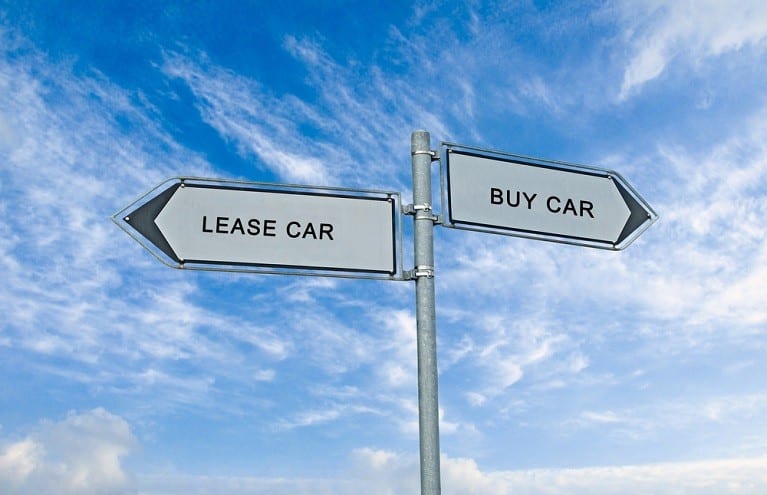Buying vs Leasing Your Next Car – Pros and Cons

The peak car-buying season is drawing to a close. That means prices are being cut and incentive deals are being offered for purchasing or leasing many cars. These deals come after most manufacturers actually lowered suggested prices last year. Values abound in the car world, but that’s no reason to leave cash on the table. To decrease the cost of buying the car and maximize your after-tax wealth, decide whether buying or leasing is best for you.
Leasing gets more popular every year. Last year, about 39% of new cars were leased. But that doesn’t mean all those leases were good deals or that leasing is for you. Here’s my handy guide to the buy-or-lease decision.
- There are no tax benefits to leasing a car. Many people think there are, but there simply aren’t. Put all tax issues aside and think about cash flow.
- Don’t focus on the monthly payments. Lease payments generally are substantially below the payments on a purchase loan. But leasing payments are less because you are only purchasing a portion of the car, or only renting it. You have no equity in the vehicle. In addition, the initial payment on a lease should be less than for a purchase, unless you are making a higher payment to bring down the monthly costs.
- Negotiate the car’s price first. After deciding on the car you want, negotiate the best price you can get without discussing buying versus leasing. Only after the price is determined should you discuss how to finance the car.
- Leasing is only for those who want a new vehicle very few years. If you are like me and don’t want to part with a car until it has about 100,000 miles on it (my current vehicle just passed 85,000), then you’ll save money by purchasing. If you turnover your cars every five years or less or you want a nicer car than you can afford to buy, consider a lease.
- If you drive more than 12,000 to 15,000 miles annually, leasing might be too expensive. Leases charge an additional fee per mile above one of these limits. The fee usually is 15 cents to 25 cents per mile. You might be able to negotiate a higher amount, but you’ll pay more monthly. Generally leases are not affordable to high-mileage drivers.
- Pay attention to the residual value assigned to the car. The higher the residual value, the less your lease payments will be. It is not unusual to find a leasing company that will assign a higher residual value to the car than a standard industry publication forecasts, such as the Automotive Lease Guide – 1999 Residual Percentage Guide. If the residual value is high, take advantage of it. But if the residual value is too low, then your lease payments will be higher than they should be. Also you might be able to buy the car at the end of the lease, sell it in the market, and pocket the difference.
- Lease cars that have a good history of retaining their values. This follows from the point above. You actually can afford to lease a more expensive car if it holds its value more than the less expensive car and the residual value is properly estimated in the lease. You’ll be using a smaller portion of the car’s value, so your lease payments will be less.
- Closely examine the end-of-lease payments. This is very important. Some leasing companies want to charge you for delivering the car to them or for not delivering it to a specific location (which might be a couple of hours away from you). All leases charge for wear or damage beyond the ordinary amount. But the definition can differ among leasing companies. Try to get a good idea of the leasing company’s practices. The end-of-lease payments often determine whether or not leasing was a good deal.
- Get a full itemization of all upfront payments due at lease signing.
- Deal with several leasing companies. It is easy to talk with the dealer selling the car and use the leasing company with which it works. But there are a number of independent leasing companies, and the auto dealer might work with more than one company if you ask. (Leasing companies might provide incentives to the dealer.) As with any other financial transaction, get quotes from several leasing companies.
- Be sure the lease clearly states the method of determining the price at which you can buy the car at the end of the lease. Usually this is a firm value or refers to a value determined by a service such as the Blue Book.
- If you want to save even more money, consider leasing a used car. Many cars are coming off their initial leases. The manufacturers are offering these cars for second leases and extending the warranties on them. If you can lease a car that is “certified” by the manufacturer, you’ll save quite a bit of money over a new car lease or purchase.
- What else will you do with your money? Leasing offers a lower down payment and lower monthly payments. If you will invest the difference, it could make up for not having any equity in the car. You’ll have equity in, say, mutual funds, instead of a car.
Leasing itself is neither good nor bad. The wisdom of leasing depends on your driving and ownership habits and on the lease terms, especially the total payments due at the beginning and end of the lease. Follow my checklist, and you’ll find the best car financing method for you.
![]()





